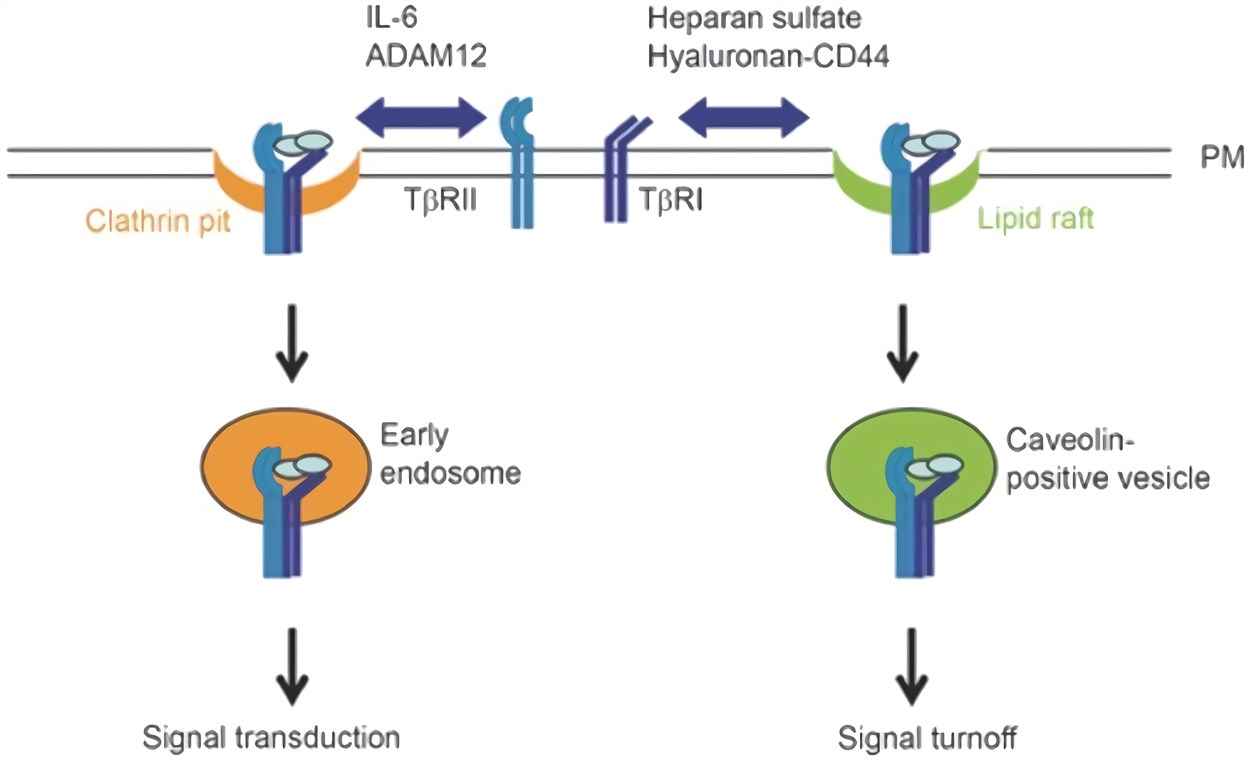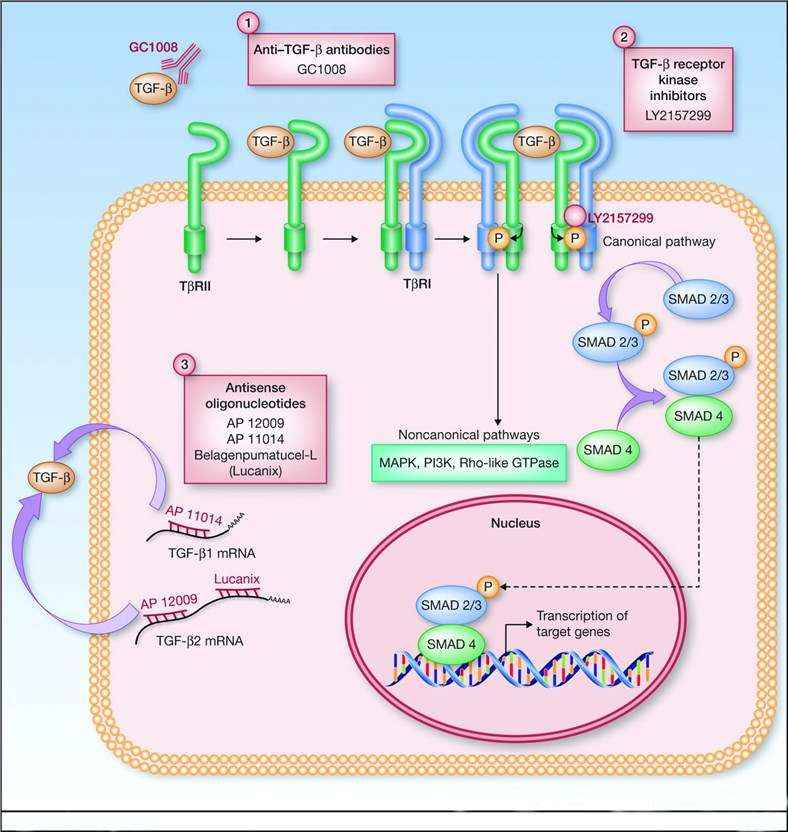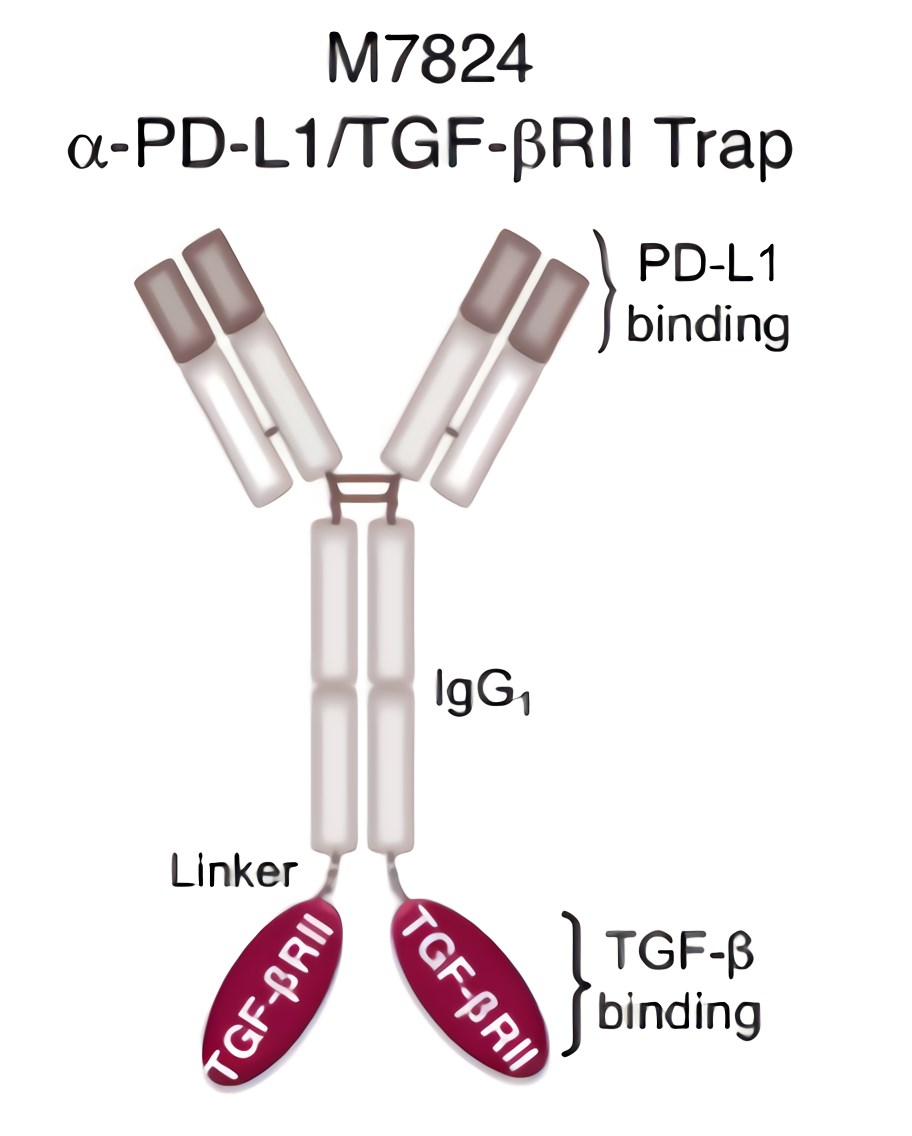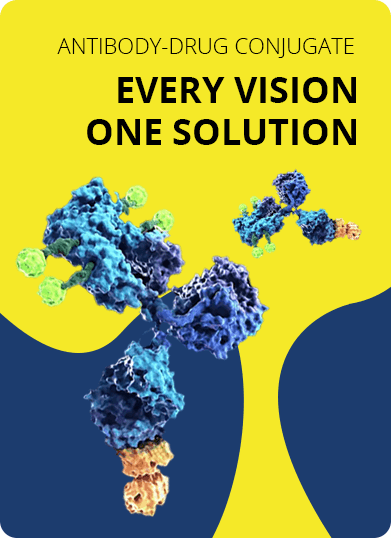- Home
- UTC Development
- Bispecific ADC Development
- Fast-internalizing Receptor based Bispecific ADC Development
- TGFβ based Bispecific ADC Development
TGFβ based Bispecific ADC Development Service
Tumor growth factor β (TGF-β), a multifunctional cytokine that regulates cell differentiation and proliferation, is often overexpressed in the tumor microenvironment. TGF-β signaling inhibits T cell proliferation and effector function. As a reliable expert in the field of antibody-drug conjugate (ADC) development, Creative Biolabs is focusing on cutting-edge bispecific antibody strategies and can provide a comprehensive portfolio of anti-TGF-β bispecific ADC development services and products.
The Overview of TGF-β
TGF-β is a member of the structurally related growth factor family, which includes TGF-β, activin, bone morphogenetic proteins (BMPs), myostatin, and others. These factors play key roles in regulating a wide range of biological responses during development and tissue homeostasis in adults. Deregulation of their signal transduction has been associated with many human diseases such as cancer and tissue fibrosis. The overexpression of TGF-β by many advanced tumors correlates with metastasis and poor prognosis. Emerging evidence suggests that TGF-βs are important mediators of the dynamic and reciprocal interactions between the tumor parenchyma and cells of the tumor microenvironment, so targeting this pathway offers the attractive possibility of impacting on both compartments simultaneously.
 Fig.1 TGF-β receptors internalization. (Chen, 2009)
Fig.1 TGF-β receptors internalization. (Chen, 2009)
Like other cell surface receptors, TGF-β receptors are internalized into the cell via clathrin-coated vesicles or cholesterol-rich membrane microdomain lipid rafts/caveolae. Internalization of TGF-β receptors via clathrin-coated pits can enhance TGF-β signaling but lipid rafts-mediated endocytosis of TGF-β receptors facilitates receptor degradation and signal turnoff.
Antibody-based Therapeutics Targeting TGF-β
TGF-β is a potential drug target for cancer treatment, especially in the case of highly invasive or metastatic tumors. Therapies designed to block TGF-β signaling pathway include:
- Inhibition of TGF-β signaling by sequestering the ligands with anti-TGF-β neutralizing antibodies, such as GC1008.
- Inhibition of translation of the TGF-β ligand using antisense oligonucleotides such as AP12009 and AP11014.
- Inhibition of receptor activation through the use of TGF-β receptor kinase inhibitors, such as LY2157299.
 Fig.2 Therapeutic approaches to targeting the TGF-β signaling pathway. (Smith, 2012)
Fig.2 Therapeutic approaches to targeting the TGF-β signaling pathway. (Smith, 2012)
To explore the possibility in the context of kidney disease, scientists utilized a bispecific antibody targeting TGF-β and the extra domain A isoform of fibronectin. The bispecific molecule was shown to localize in the kidney and showed anti-fibrotic activity, lending support to the idea that this type of approach may be used for safer anti-TGF-β therapeutics as well as for other targets with multiple functions. In this example, the anti-fibronectin tissue arm has only the tissue delivery function.
M7824 is a bifunctional molecule consisting of an anti-PD-L1 mAb fused to the extracellular domain of the TGF-β receptor II that acts as a trap for all three TGF-β isoforms. The expression of PD-L1 is increased in some tumors and the blockade of its interaction with PD-1 is an attractive therapeutic strategy. Preclinical experiments showed M7824 had anti-tumor activity and although it produced a reduction of TGF-β levels in both the tumor microenvironment and in plasma, it is possible that by carefully engineering the affinities a more localized inhibition could be achieved.
 Fig.3 The structure of M7824. (Lind, 2020)
Fig.3 The structure of M7824. (Lind, 2020)
What Can We Do for You?
Bispecific ADCs have emerged recently that seek to enhance internalization and trafficking to the lysosome, thus maximizing the amount of drug that is effectively delivered to tumor cells at a given dose. Selecting the appropriate combination of affinity optimized TGF-β x EGFR, TGF-β x PD-L1, TGF-β x CD73 bispecific ADC variants could lead to higher selectivity with broad therapeutic index. Creative Biolabs is capable of offering anti- TGF-β bispecific ADC development services against the mentioned target combination with our one-stop ADCs development services, including ADC Antibody Screening, DrugLnk™ Custom Synthesis, Antibody Design and Conjugation, ADC in vitro Analysis and ADC in vivo Analysis.
TGF-β is an important protein with therapeutic value in oncology and renal fibrosis indications. If you are interested in our TGF-β-based bispecific ADCs development services or products, please don’t hesitate to contact us for more information. For any price or customized service inquiries, Creative Biolabs will get back to you as soon as possible.
References
- Chen, Y. G. Endocytic regulation of TGF-β signaling. Cell research. 2009, 19(1): 58-70.
- Smith, A. L.; et al. Molecular pathways: targeting the TGF-β pathway for cancer therapy. Clinical Cancer Research. 2012, 18(17): 4514-4521.
- Lind, H.; et al. Dual targeting of TGF-β and PD-L1 via a bifunctional anti-PD-L1/TGF-βRII agent: status of preclinical and clinical advances. Journal for Immunotherapy of Cancer. 2020, 8(1).
For Research Use Only. NOT FOR CLINICAL USE.

Online Inquiry
Welcome! For price inquiries, please feel free to contact us through the form on the left side. We will get back to you as soon as possible.
